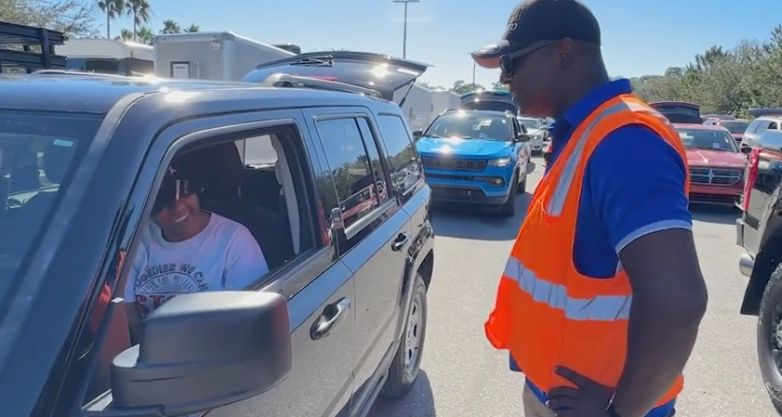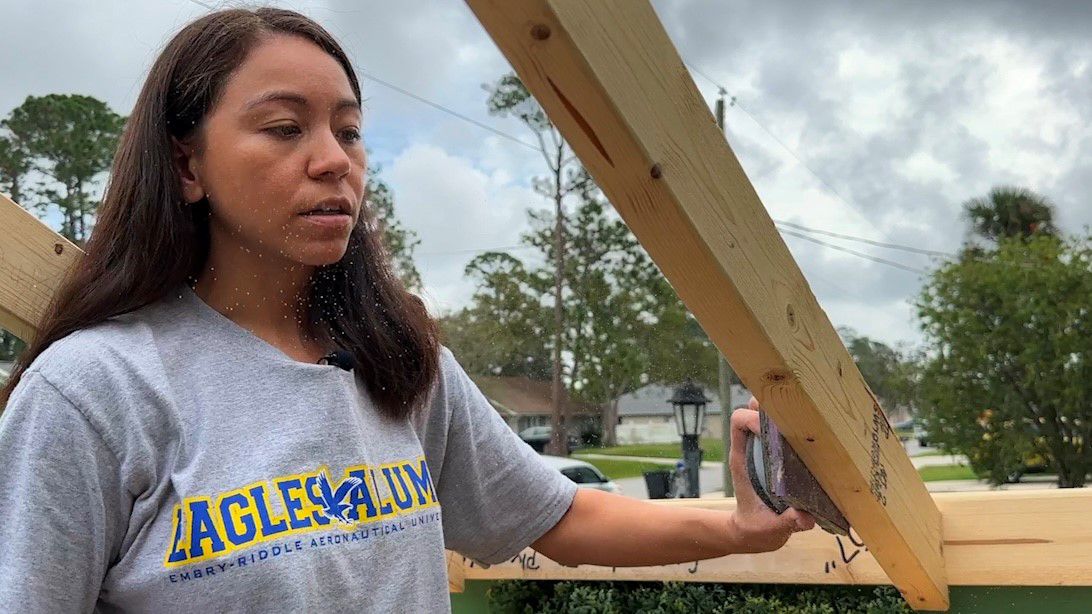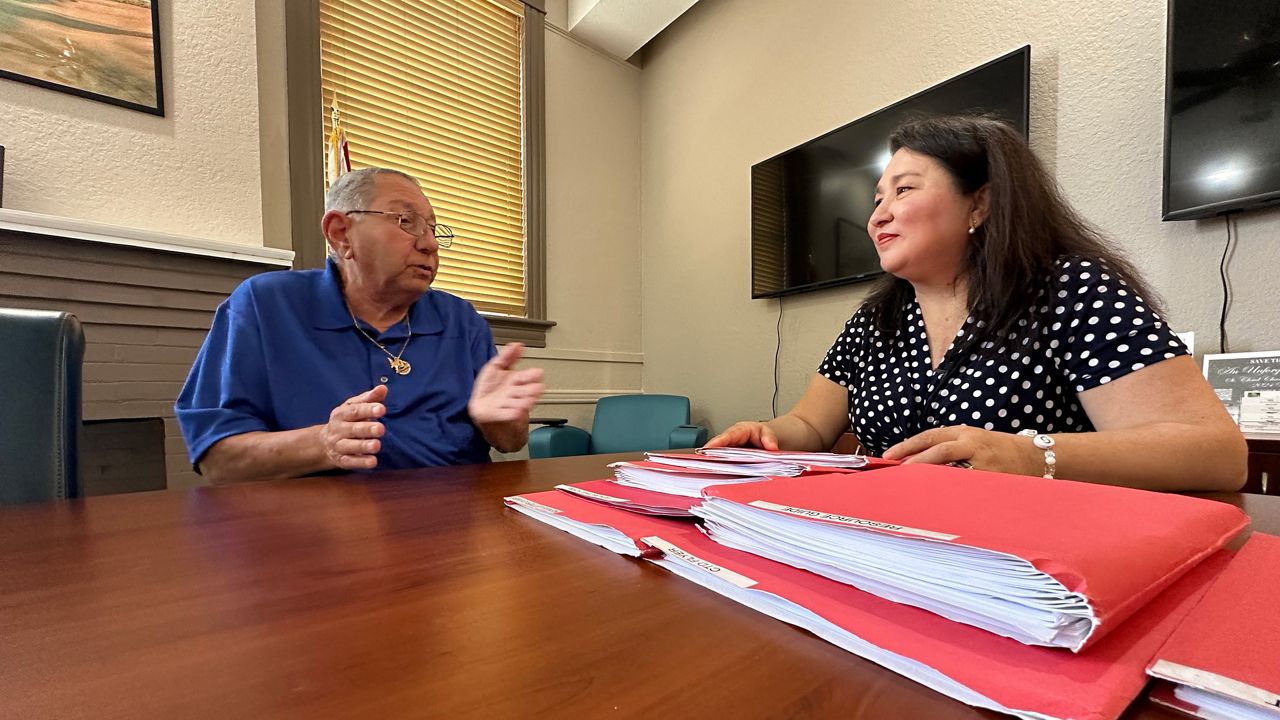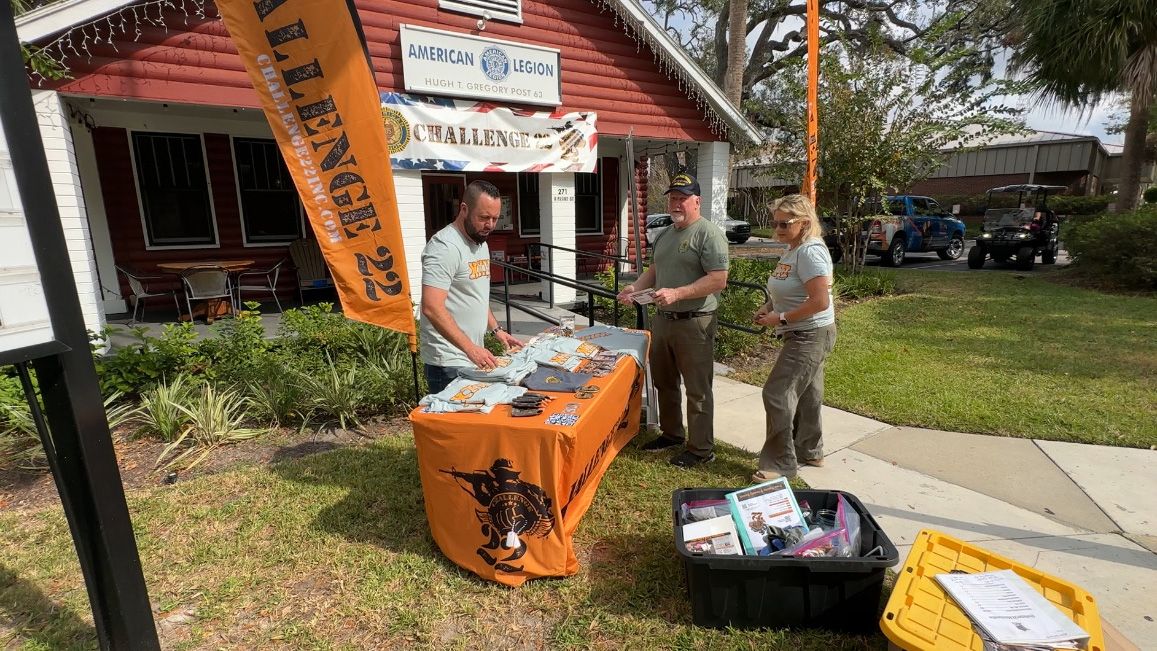SANFORD, Fla. — The Orlando Veterans Affairs Healthcare System reports 90% of Central Florida post-traumatic stress disorder (PTSD) vets prefer virtual care compared in person treatment.
A common symptom of a vet with PTSD is avoidance. Many are not willing to leave home to deal with civilian life, but therapy for treatment is important.
Kevin Steinmann is a disabled Army sergeant who admits he has been dealing with PTSD for 25 years.
His friend Paul Mason also served in the U.S. Army, and he too struggles with PTSD.
Together, they stand side by side, working together to get through sounds and images that would or could trigger them.
Steinmann admits over the years he’s tried several different forms of treatment for PTSD.
“I had a service animal,” Steinmann said. “I had a service dog given to me. Medication, which all it does, is numb you, therapy that I have been going through.”
Steinmann says he gets triggered by the sound of helicopters after one of his roles while serving was responding to downed helicopters.
For Mason, who has physical scars as well as mental ones, he says he can be triggered by loud, surprising sounds.
Making the transition to civilian life is more challenging.
“Your infantry, your 11-Bravo, where are you going to have a job?” Mason asks rhetorically. “You are not a mechanic, not a medic, so you don’t have a job to transfer in to. You get out of infantry, you have security, cop, SWAT, that’s it.”
And what these two do together to help with their PTSD may surprise you. You can see them going through an active police training situation on a simulator at Decision Tactical in Sanford.
Side by side, these two yell out commands and respond to an active domestic simulator. A simulator even law enforcement uses today for training purposes.
Hostage situations, bad guys with weapons, and even the sounds like overhead helicopters flying and gunshots to go with it. Sounds that used to trigger Steinmann.
“Since being at Decision Tactical for a year, it’s made it to where I can actually function in this environment and not be afraid,” Steinmann admits.
According to the Department of Veterans Affairs, up to 29% of veterans, depending on their service, will develop PTSD at some point in life.
Dr. Laura Meyers is the program coordinator for the PTSD Trauma Team at the Orlando VA.
She says there’s four main staples of treatment for veterans who suffer from PTSD:
(PE) prolonged exposure
(CPT) cognitive processing therapy
(EMDR) eye movement desensitization and reprocessing
(WET) written exposure therapy
“These are the common therapies that people use,” Meyers explained. “That involves exposure to thoughts, memories, beliefs, situations that were present at the time of the trauma and are now they believe are unsafe.”
Meyers has not seen what Steinmann and Mason do in this type of simulator but says if simulators are being used socially, it could have a positive effect.
“We work with some veterans where their only friends are people they play with online,” Meyers says. “That can have a positive effect so yes, shooting people can make PTSD symptoms worse, but doing it with friends might make it a little bit better because you are at least connecting with people. “
Traditionally, Meyers endorses two common types of treatment for veterans suffering from PTSD. Some sort of exposure therapy and some form of cognitive-behavioral therapy. She says those have the best type of response.
Both Steinmann and Mason admit they have tried both one on one and group therapy, but it was not right for them.
Doing the active simulators together or side by side and with other vets suffering from PTSD, they say it gets them out of their homes and into society for positive interactions.
“For what I have gone through, and to experiencing this, that was enough proof to see how valuable this is,” Mason admits. “This can be valuable to the veteran community as a whole.”
The VA reports that there have been at least 6,000 suicides a year from 2001 to 2022.
At the end of 2024, the VA released its National Veteran Suicide Prevention Annual report and it stated in 2022 there was on average 131.2 suicides per day among U.S. adults. Roughly 17 of those a day were veteran suicides.
The U.S. Department of Veteran Affairs stated if you are a veteran with PTSD, or think you may have PTSD to call 9-8-8 to speak to a trained crisis counselor.






)




